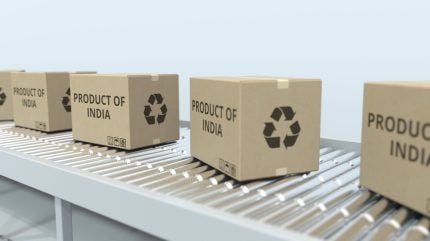
India’s decision to allow recycled plastic in food-grade applications, announced on World Environment Day 2025, marks a major development in the country’s fight against plastic pollution.
This policy change not only signals government support for a circular economy but also places increased responsibility on the travel, hospitality, and food service industries to adopt sustainable practices.

Discover B2B Marketing That Performs
Combine business intelligence and editorial excellence to reach engaged professionals across 36 leading media platforms.
Recycled plastic in food use marks a national shift in waste strategy
By permitting recycled plastic in food-grade settings, the Government of India has responded to long-standing calls from environmental experts and industry leaders.
The decision allows plastic materials—when collected, processed, and certified correctly—to be reused in packaging and food service, reducing dependency on virgin plastic.
The move supports a larger national goal: transitioning from a linear to a circular economy. While the policy sets a new standard, the real test lies in implementation.
Infrastructure for collection and recycling, clear labelling, and strict quality assurance will be essential to ensure public health and environmental safety are not compromised.

US Tariffs are shifting - will you react or anticipate?
Don’t let policy changes catch you off guard. Stay proactive with real-time data and expert analysis.
By GlobalDataTravel and hospitality sectors under pressure to reduce plastic use
The tourism industry is now under heightened scrutiny. Hotels, resorts, and airlines are increasingly expected to provide plastic-free options as standard, not luxury.
Already, many businesses have introduced alternatives such as compostable trays, refillable toiletry stations, and reusable water bottles.
Companies like HungerBox, which supplies meals to major Indian workplaces, are setting examples by removing single-use plastics across their services.
Their operational model prioritises sustainable packaging, eco-certified vendors, and digital tools that reduce waste across food service environments. In large-scale catering operations common in hospitality and travel, such systemic changes can significantly reduce plastic footprints.
Investors and consumers drive the shift toward circular packaging
Investment firms focused on sustainability, including Green Frontier Capital, have welcomed the policy change as a signal to scale up funding for waste-tech and eco-packaging startups.
Their strategy reflects a growing belief that financial backing must support not just growth but environmental recovery.
Consumer behaviour is also shifting. A recent global survey by Booking.com found that 76% of travellers prefer accommodations with strong sustainability practices, while nearly 70% are more likely to book with businesses that avoid single-use plastics.
This trend places pressure on operators across the travel chain—from airports and hotels to tour companies and in-flight services—to overhaul their packaging systems.
What comes next for India’s plastic pollution fight
The policy change marks progress, but experts caution that widespread impact will depend on consistent enforcement, supply chain transparency, and public education.
Clear certification standards, proper sorting and recycling systems, and mass awareness campaigns will be necessary to build trust and prevent greenwashing.
Tourism and hospitality organisations will need to collaborate on benchmarks and best practices. Suppliers and service providers must align around common goals for material reuse and waste reduction.
India’s plastic policy shift offers a rare moment of clarity for the industry: adapt now, or risk falling behind in an economy where environmental accountability is no longer optional.





